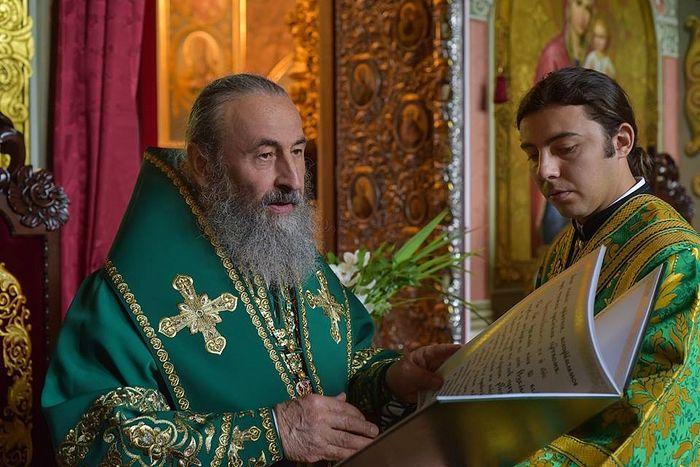How to Properly Prepare for the Apostles Fast, and Whether a Modern Person Needs to Fast
 In this brief interview, His Beatitude Metropolitan Onuphry of Kiev and All Ukraine speaks on fasting, modern man, and role models.
In this brief interview, His Beatitude Metropolitan Onuphry of Kiev and All Ukraine speaks on fasting, modern man, and role models.
—Your Beatitude, Pentecost ends the Paschal cycle. We start counting anew from this week. How does this period differ from the other cycles of the year?
—The holy Church was born on Pentecost, and after the feast it began to actively work and preach; similarly, after Pentecost, a new enumeration of every following Sunday begins in the Church’s liturgical year, in which are recalled, besides the mystery of the Resurrection, notable Gospel events or events from Christian history. For example, on the first Sunday, the Synaxis of All Saints is remembered, and on the second, All Saints Who Shone Forth in the Russian Land, and so on.
—The Apostles Fast begins today. Concerning fasting, you often hear that in our nervous age, fasting is just an additional stress. How is fasting useful for modern man?
—After the universal flood, due to man’s infirmity, the Lord blessed meat; that is, people began to eat the flesh of animals and birds. But the former life expectancy of man was already gone. This shows us that fasting is not some kind of cruelty on the Lord’s part towards His creation. The Lord wants us to return, through fasting, to the former order of this beautiful dispensation that man had in Paradise. In other words, fasting is not a stress for man, but a means that relieves stress.
—What is the proper way to prepare for a fast? What can we do during a fast, and what can we not do?
—In the fasts we limit ourselves, firstly from non-fasting food. Vegetation is natural for man and the most beneficial to his health. When people are seriously ill, or when old age sets in, even doctors don’t recommend eating heavy meats. They’re better for young people, for those who have strong bodies, and for those doing hard physical labor. And the holy Church, knowing what is good for man, advises to abstain from meat products during Great Lent to restore harmony to our body and that natural order that God established in every man. When we fast, our bodies restructure themselves. If someone always eats meat, it might be hard for him to live just on vegetation at first. But this is a positive reaction, and after a while, everything is restored, and he will feel fine. If someone who has smoked for a long time is forced to quit, he starts to have psychoses and some unpleasant changes in his body. But that doesn’t mean he needs to smoke in such a malaise—it’s just a positive reaction to his healing.
—What can happen to someone who doesn’t fast?
—Someone who fasts has personal experience of overcoming various difficulties and temptations in life, but someone who doesn’t fast is deprived of such experience. I wish that we would all be enriched by the experience of spiritual struggle, through which we travel to spiritual perfection. This is what the holy Church calls us to today through the blessing of the Apostles Fast. It should also be remembered that when a person joins in the bodily and spiritual fast, then an especially intensive spiritual development begins, ascending from degree to degree, or, as the holy Church says, spiritual perfection, which begins on Earth and continues eternally in the Heavenly life.
—And a final, personal question. Do you have a role model?
—All of us Christians try to emulate our Savior and Creator; after all, everyone has God within Himself: As soon as a man is born, the Godhead already sanctifies and fills him. Some saints had the opportunity to see God even with their own eyes; they were filled inside with Divine light, which expanded their hearts and souls until they could see God Himself. However, there were few such people to whom the Lord Himself appeared. Among them was St. Silouan the Athonite. When the Lord was somewhat distant from him, St. Silouan suffered greatly because he no longer saw Christ during prayer, which was infinitely more difficult for him then. St. Silouan is a role model, for he shows us how we must draw nearer to Christ even in this earthly life through labors and prayer. Another example of holiness, very beneficial for modern man, is St. Mary of Egypt, who through labors and prayer turned from a great sinner into a great saint. We are not capable of such podvigs, but we must know that when a person gradually, from fast to fast, from fasting day to fasting day, tries to abstain, to keep himself within the bounds of the Divine law, he also comes to his own measure of perfection, and is granted mercy from God both here, on Earth, and in Heaven—in the eternal Kingdom.
Source: Orthochristian.com






